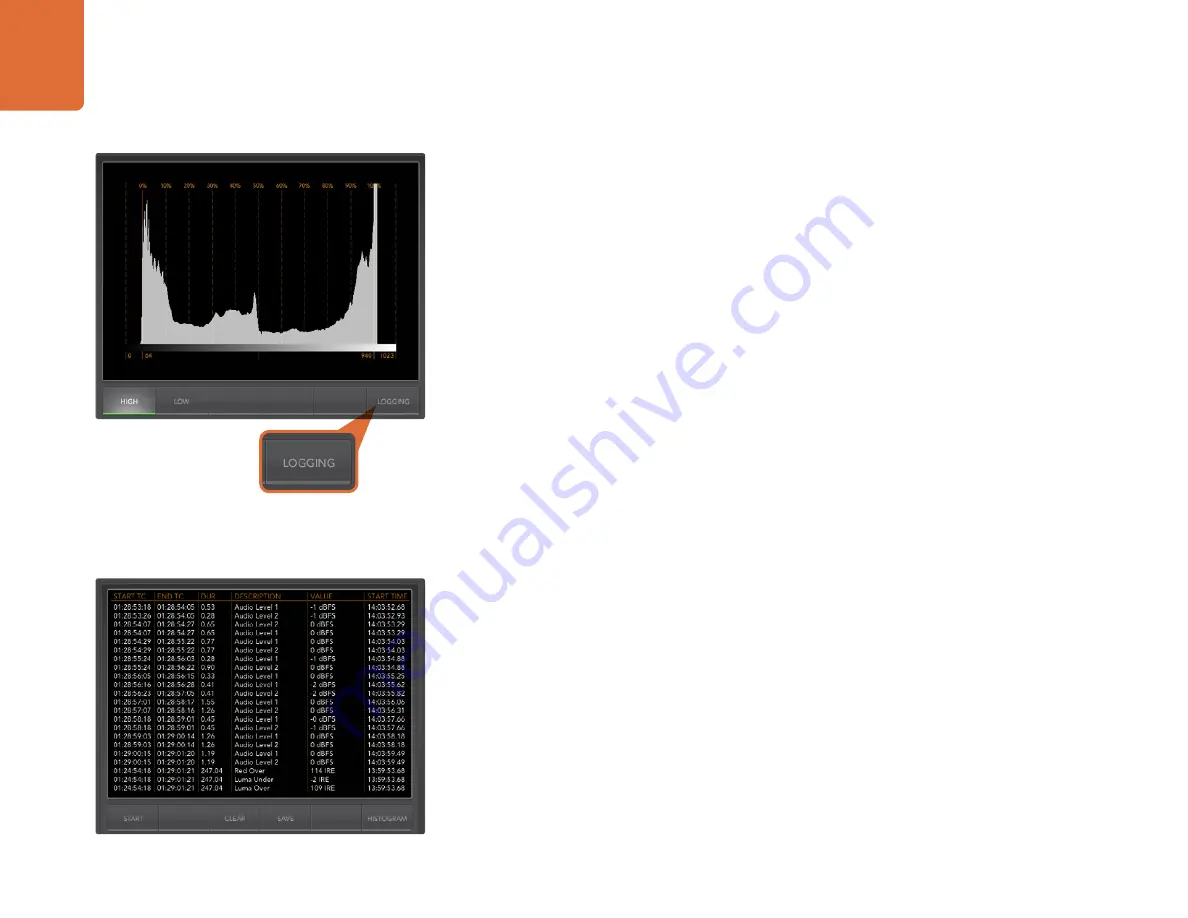
Waveform Monitoring
122
Error Logging Display
Error Logging records errors in video and audio and is indispensable when reviewing video and for
unattended operation. Errors may be logged for color, brightness or audio threshold levels as well as loss
of video signal, change of video format or audio silence. After setting the parameters which define when an
error should be logged, you can choose to start or stop error logging, save the log to a file, or clear the log.
These functions can be selected from the buttons in the Error Logging Display or from the Error Logging
pulldown menu.
Errors are recorded against timecode and time of day to make them easy to find. If the timecode is not
present, errors can be found by reviewing the time of day at which they were recorded. As computer clocks
can drift, it is a good idea to inspect the Date & Time settings on your computer, and set the clock to
synchronize with an Internet time server to ensure accurate time of day logging.
In the Full Screen view, Histogram Display and Error Logging Display share the same area of the
UltraScope interface. Select the LOGGING button, below the Histogram Display, to switch to the Error
Logging Display. Select the HISTOGRAM button, below the Error Logging Display, to switch back to the
Histogram Display. After quitting and reopening the UltraScope application, the last viewed display will
be made visible again, i.e. either Histogram or Error Logging.
In 2-up view, Histogram Display and Error Logging Display can be viewed simultaneously and so there are
no LOGGING or HISTOGRAM buttons.
When viewing the Error Logging Display for the first time, the display will initially be blank other than for
some column headings. Select the START button to commence logging. In Full Screen view, you can switch
back to the Histogram Display and UltraScope will continue to perform error logging until you choose to
stop it.
When error logging is being performed, the STOP button replaces the START button. When the STOP
button has been selected, you can choose to START again and any new errors will be appended to the
existing log. When error logging has been stopped, you can choose to SAVE the log to a CSV file or
alternatively CLEAR the log. The SAVE and CLEAR buttons will not appear if no errors have been recorded.
The CSV file can be analyzed in many applications including spreadsheet and database software.
By default, error logging is performed using the EBU-R103 standard which is set down by the European
Broadcasting Union. This standard is popular worldwide and is commonly used as a template for making
new error logging profiles.
From the Histogram Display, select the Logging button to switch
to the Error Logging Display.










































